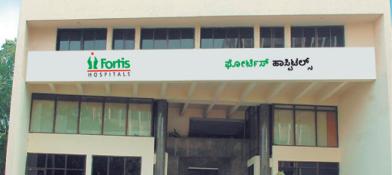Fecal occult blood test
Overview:
The fecal occult blood test (FOBT) examines the human stool samples for any hidden blood in them. Blood in the stool means that there is bleeding in the digestive tract and points toward various health conditions. The test uses certain chemicals to identify the traces of blood in the stools. However, the test can only identify traces without determining the source and reason for bleeding, so additional tests are required to get information on what is causing the bleeding. The test is not recommended for people with colon cancer symptoms.
Indications For use:
The fecal occult blood test is prescribed by doctors for people who have the following symptoms.
- Abdominal pain
- Weakness and fatigue
- Pain around the rectum or colon.
- Bleeding in the rectum and colon.
Types Of Fecal Occult Blood Tests:
There are various types of fecal occult blood tests depending on the agent that is used to find traces of blood in the stool.
- Guaiac fecal occult blood test (gFOBT): This test identifies blood with the help of a chemical called guaiac.
- Fecal immunochemical test (iFOBT or FIT): The test helps detect blood in the stool using antibodies.
- FIT-DNA: This test checks the stool for DNA alterations that are associated with colorectal cancer.
- Flushable reagent pad or tissue: This is a home testing kit available at drug stores that doesn’t require a prescription. It involves placing a pad or tissue for three days to check the bowels. The pad or the tissue changes color if the blood is present in the bowel.
The Procedure:
What happens before the procedure?
The person undergoing the test is required to adjust their diet and medications before the test as they can give false positives. Fiber in the diet has to be increased while red meat and supplements like iron and vitamin C have to be reduced. The dosage of blood thinning medications, pain killers and nonsteroidal anti-inflammatory drugs (NSAIDs)has to be increased. The test should be avoided if the person has bleeding hemorrhoids, peptic ulcers, and gastritis.
What happens during the procedure?
The person is needed to collect their stools in a dry container and submit the sample to the laboratory for testing.
If the person is utilising a home kit, then they need to follow the instructions carefully.
The kit has a paper or a dry container to collect the stools. If the person is taking the guaiac test, then the urine should not be mixed up with the stools. The kit includes a wooden stick or a brush for collecting the stool which can either be smeared on a test card or the sample can place in a tube that is provided in the kit. The sample should be labeled as instructed as well as returned to the lab for testing.
The Results:
- The results can be expected within 7 days. However, in some cases, it may take longer.
- A positive test indicates bleeding in the digestive tract and may mean colorectal cancer.
- However, the test should be taken as a final step in cancer diagnosis. The doctor may recommend an additional investigation to locate the cause of the bleeding and to confirm cancer.
Benefits Of The Fecal occult Blood Test:
Blood in the stool may be indicative of certain health conditions, and the test helps to diagnose the following:
- Colorectal cancer before the onset of symptoms.
- Colitis which is inflammation in the bowel.
- Abnormal growths and polyps on the lining of the colon or rectum.
- Hemorrhoids and swollen veins in the anus or rectum.
- Diverticulosis, a condition that develops small pouches-like structures inside the wall of the colon.
- Ulcers and sores in the digestive tract.
- Anemia and its causes.
The test also helps in differentiating between Irritable Bowel Syndrome(IBS) and Inflammatory Bowel Disease(IBD). Once blood is detected in the stools the doctor may prescribe further investigation to confirm the exact cause of bleeding.
The other tests include:
- A stool DNA test is to check the stool for blood and cells that display genetic changes that may indicate cancer.
- A colonoscopy or sigmoidoscopy is advised to get a complete view of the colon. The test involves inserting a thin tube with a camera inside the colon.
- CT colonography, also known as virtual colonoscopy includes consuming a dye and the use of X-rays to obtain clear and detailed images of the entire colon and rectum.
The Risks Involved In Fecal Occult Blood Test:
Test inaccuracy: The test is not accurate all the time and may show false negatives and positives. It may show a false negative if the polyps or the tumor doesn’t bleed. Or a false positive when there is no cancer but there is bleeding from other sources such as stomach ulcer, hemorrhoids, or when blood is swallowed from the mouth or nose.
Further testing is required: Fecal occult blood tests by themselves aren’t enough to confirm a condition. Once the test is positive, further testing, like colonoscopy, may be required.
In a nutshell, Hidden traces in the blood can indicate serious health conditions like colorectal cancer, hemorrhoids, etc, and cannot be detected with the naked eye. These conditions may not exhibit other symptoms, and hence, a fecal occult blood test can be very effective in finding blood traces so that the doctor can suggest further investigations. The test is safe, doesn’t hurt, and results are quick. However, the test can give false negatives and positives, so further investigations to confirm the health conditions are essential to be used after the fecal test.
Even if people are conducting the test using a home kit, they should follow up with the doctor and adhere to their instructions for additional testing and procedures to make an accurate diagnosis.
Popular Searches :
Hospitals: Cancer Hospital in Delhi | Best Heart Hospital in Delhi | Hospital in Amritsar | Hospital in Ludhiana | Hospitals in Mohali | Hospital in Faridabad | Hospitals in Gurgaon | Best Hospital in Jaipur | Hospitals in Greater Noida | Hospitals in Noida | Best Kidney Hospital in Kolkata | Best Hospital in Kolkata | Hospitals in Rajajinagar Bangalore | Hospitals in Richmond Road Bangalore | Hospitals in Nagarbhavi Bangalore | Hospital in Kalyan West | Hospitals in Mulund | Best Hospital in India | | Cardiology Hospital in India | Best Cancer Hospital in India | Best Cardiology Hospital in India | Best Oncology Hospital In India | Best Cancer Hospital in Delhi | Best Liver Transplant Hospital in India
Doctors: Dr. Rana Patir | Dr. Rajesh Benny | Dr. Rahul Bhargava | Dr. Jayant Arora | Dr. Anoop Misra | Dr. Manu Tiwari | Dr. Praveer Agarwal | Dr. Arup Ratan Dutta | Dr. Meenakshi Ahuja | Dr. Anoop Jhurani | Dr. Shivaji Basu | Dr. Subhash Jangid | Dr. Atul Mathur | Dr. Gurinder Bedi | Dr. Monika Wadhawan | Dr. Debasis Datta | Dr. Shrinivas Narayan | Dr. Praveen Gupta | Dr. Nitin Jha | Dr. Raghu Nagaraj | Dr. Ashok Seth | Dr. Sandeep Vaishya | Dr. Atul Mishra | Dr. Z S Meharwal | Dr. Ajay Bhalla | Dr. Atul Kumar Mittal | Dr. Arvind Kumar Khurana | Dr. Narayan Hulse | Dr. Samir Parikh | Dr. Amit Javed | Dr. Narayan Banerjee | Dr. Bimlesh Dhar Pandey | Dr. Arghya Chattopadhyay | Dr. G.R. Vijay Kumar | Dr Ashok Gupta | Dr. Gourdas Choudhuri | Dr. Sushrut Singh | Dr. N.C. Krishnamani | Dr. Atampreet Singh | Dr. Vivek Jawali | Dr. Sanjeev Gulati | Dr. Amite Pankaj Aggarwal | Dr. Ajay Kaul | Dr. Sunita Varma | Dr. Manoj Kumar Goel | Dr. R Muralidharan | Dr. Sushmita Roychowdhury | Dr. T.S. MAHANT | Dr. UDIPTA RAY | Dr. Aparna Jaswal | Dr. Ravul Jindal | Dr. Savyasachi Saxena | Dr. Ajay Kumar Kriplani | Dr. Nitesh Rohatgi | Dr. Anupam Jindal
Specialties: Heart Lung Transplant | Orthopedic | Cardiology Interventional | Obstetrics & Gynaecology | Onco Radiation | Neurosurgery | Interventional Cardiology | Gastroenterologist in Jaipur | Neuro Physician | Gynecologist in Kolkata | Best Neurologist in India | Liver Transfer































